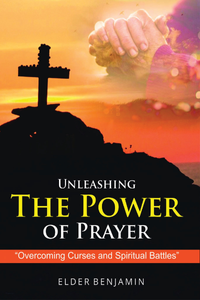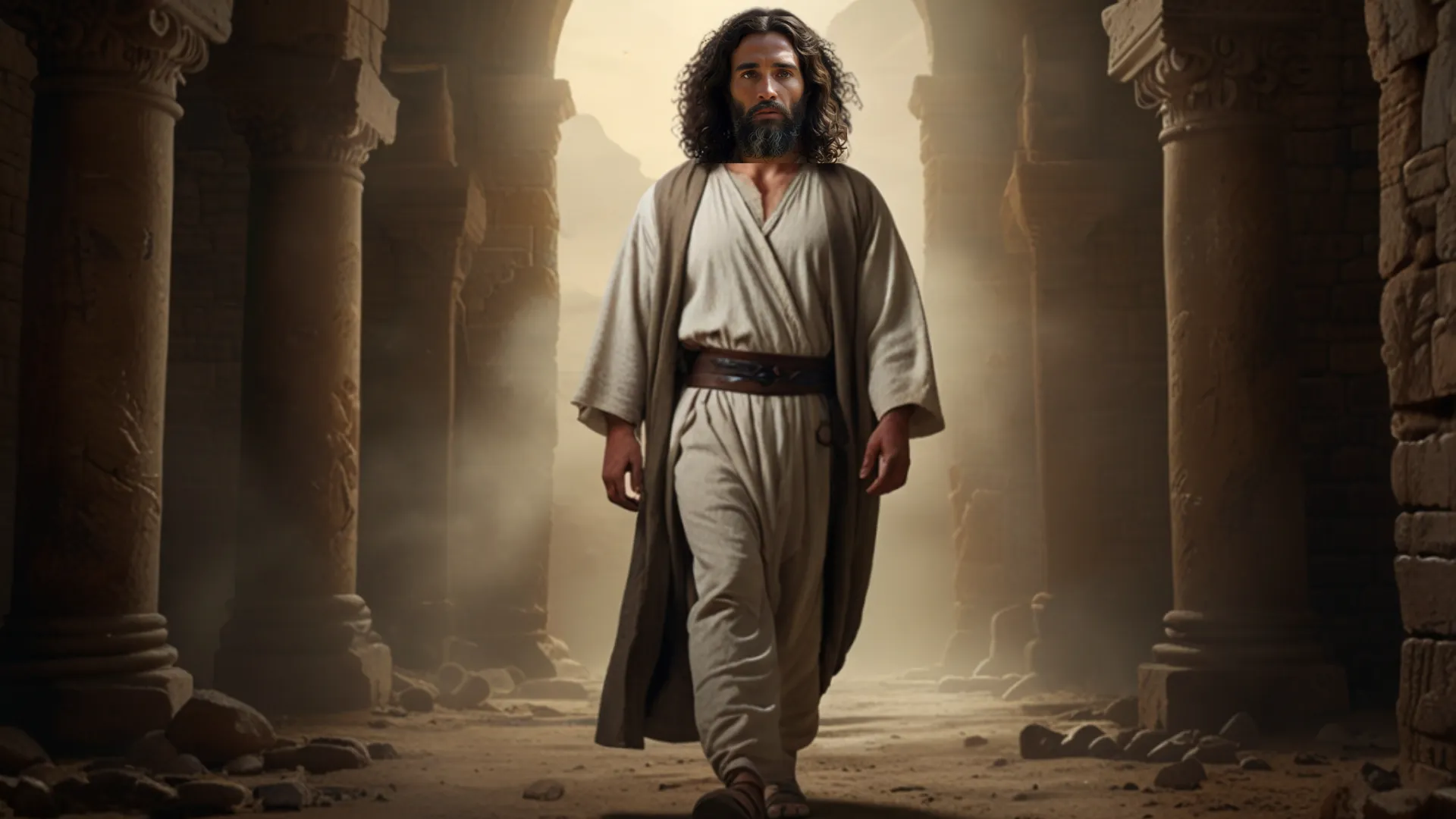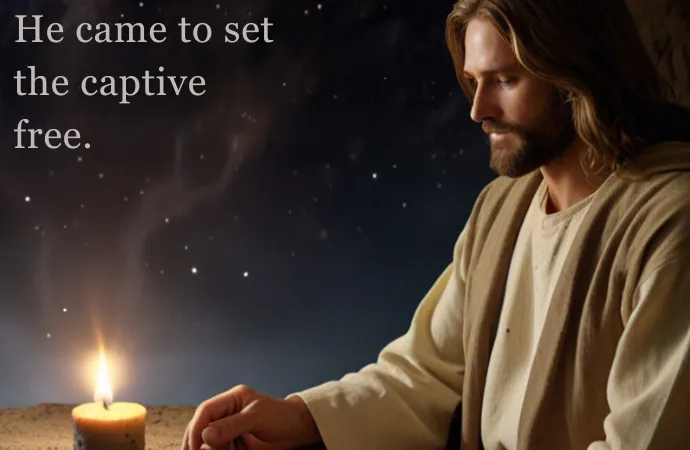Exploring Faith Through Art and Creativity
Introduction
Creativity is one of the most profound gifts bestowed upon us by God, offering a unique and powerful way to express our faith. Whether through painting, music, writing, or design, creativity has the ability to deepen our spiritual lives, connect us more intimately with God, and inspire others in their spiritual journeys. This article delves into the intersection of faith and creativity, exploring biblical foundations and providing practical insights on how to incorporate artistic expression into your walk with God.
Throughout history, creativity has been a vital aspect of human expression, shaping cultures and communities in profound ways. From the grand cathedrals of Europe to the timeless hymns of the Christian faith, art and creativity have been integral to how we worship, understand, and communicate with the divine. Creativity allows us to convey what words alone cannot, tapping into a deeper spiritual reality that transcends mere logic and reason. It engages our hearts and souls, enabling us to explore the mysteries of faith and to express our deepest emotions and thoughts in a form that resonates with others.
In today's fast-paced world, where technology often dominates our lives, there is a growing need to reconnect with this creative spirit. Many find that their spiritual lives become richer and more fulfilling when they engage in creative activities, whether it be through painting, music, writing, or other forms of artistic expression. This article not only explores the biblical foundation for creativity but also provides practical tips for incorporating creative practices into your daily spiritual routine. By embracing your creative gifts, you can deepen your relationship with God and enrich your spiritual journey in ways that are both meaningful and transformative.
The Biblical Foundation for Creativity
Created in the Image of a Creative God
The Bible opens with a grand narrative of creation: "In the beginning, God created the heavens and the earth" (Genesis 1:1). This verse not only marks the beginning of everything but also introduces God as the ultimate Creator. Being made in God's image (Genesis 1:27), we are endowed with the ability to create, to envision, and to appreciate beauty. Our creative instincts are a reflection of God's own creativity, making every act of creation an echo of the divine.
When we consider the concept of being made in God's image, it is essential to recognize that this encompasses more than just our physical or intellectual traits. It includes our capacity for creativity, imagination, and innovation. Just as God brought order out of chaos, fashioned the universe with intricate detail, and infused life with beauty, so too are we called to create, innovate, and bring beauty into the world. This creative impulse is not merely a human inclination but a divine mandate, a way for us to participate in God's ongoing work of creation.
Moreover, the act of creation is inherently tied to our purpose and identity as human beings. In Genesis, after God creates the world, He declares it "very good" (Genesis 1:31). This affirmation of goodness underscores the value and importance of creativity in God's plan. When we create, we are not only reflecting God's nature but also fulfilling our role as stewards of His creation. Whether through art, music, writing, or any other form of creative expression, we have the opportunity to contribute to the goodness of the world and to glorify God through our creative efforts.
Biblical Verses that Inspire Creativity
Scripture is replete with verses that celebrate creativity and artistic expression. These passages remind us that our creative abilities are gifts from God, intended to be used for His glory and to edify others:
- "He has filled him with the Spirit of God, with wisdom, with understanding, with knowledge and with all kinds of skills—to make artistic designs for work in gold, silver and bronze, to cut and set stones, to work in wood and to engage in all kinds of artistic crafts."
- "O Lord, what a variety of things you have made! In wisdom you have made them all. The earth is full of your creatures."
- "For we are God’s handiwork, created in Christ Jesus to do good works, which God prepared in advance for us to do."
These verses emphasize that creativity is not just a human trait but a divine attribute that we share with our Creator. When we engage in creative acts, we are participating in a divine process that reflects God's glory and wisdom. The passage from Exodus, for example, highlights the role of the Holy Spirit in equipping individuals with creative skills and wisdom. This divine empowerment reminds us that our creative talents are not merely natural abilities but spiritual gifts that can be used to serve God's purposes.
The Psalms also provide a rich source of inspiration for creativity. Psalm 104 is a beautiful hymn of praise that celebrates God's creative power and the diversity of His creation. The psalmist marvels at the variety and intricacy of God's works, acknowledging that everything is made with wisdom and purpose. This sense of wonder and awe is at the heart of creativity, inspiring us to explore and express the beauty of God's creation in our own unique ways. Whether through visual art, music, or writing, our creative expressions can serve as a form of worship, a way to reflect on and respond to the majesty of God's creation.
Ephesians 2:10 further reinforces the idea that our creativity is linked to our identity and purpose in Christ. As God's handiwork, we are created to do good works, which includes using our creative gifts for the benefit of others. Creativity is not just about personal expression or artistic achievement; it is about contributing to the common good, building up the community, and glorifying God through our talents. Whether you are creating art, writing a song, or crafting a piece of furniture, your work can be a reflection of God's goodness and a testament to His creative power at work in you.
Exploring Creative Outlets
Art
Artistic expression, whether through painting, drawing, or sculpture, serves as a powerful medium to reflect God's beauty and truth. By engaging in art, we can meditate on biblical themes, express our inner spiritual experiences, and communicate the gospel in ways that words alone cannot. Visiting art museums, such as the National Gallery of Art, can provide inspiration and a deeper appreciation for the divine creativity reflected in human artistry. Creating art can be a form of worship, a means to share the gospel visually, and a way to connect with others who share a passion for faith and creativity.
Art has always played a significant role in the history of the Christian faith. From the early catacombs adorned with simple Christian symbols to the magnificent frescoes of the Renaissance, art has been a means of expressing and communicating the truths of the faith. Iconography, for example, has been used in the Eastern Orthodox tradition as a way to visually represent the divine and to aid in worship. Similarly, the stained glass windows of medieval cathedrals were designed not only to beautify the space but also to educate and inspire the faithful by depicting scenes from the Bible and the lives of the saints.
Today, art continues to be a powerful tool for evangelism and spiritual reflection. Christian artists around the world are creating works that explore themes of faith, redemption, and the human experience. Whether you are an artist yourself or simply someone who appreciates art, there are countless ways to engage with this form of creative expression. Consider taking up a new artistic hobby, such as painting or photography, and use it as a way to meditate on scripture or to express your prayers and reflections visually. You might also visit art exhibitions or museums that feature religious art, allowing yourself to be inspired by the ways in which others have expressed their faith through art.
Art can also be a way to engage with your community and share the gospel. Hosting an art exhibition at your church or participating in a local art show can provide opportunities to share your faith with others in a creative and non-confrontational way. Your art can serve as a conversation starter, opening doors to discuss spiritual matters and to share the hope and truth of the gospel with those who may not be reached through traditional means. By using your artistic talents for God's glory, you can make a meaningful impact on those around you and contribute to the beauty and goodness of the world.
Music
Music holds a special place in the heart of spiritual expression. Throughout the Bible, music is used to worship God, to express deep emotions, and to convey spiritual truths. King David, the author of many Psalms, is a prime example of how music can be a powerful form of worship. Whether you are composing, performing, or simply listening to music, it can uplift your soul and draw you closer to God. Incorporating hymns, contemporary Christian music, or instrumental pieces into your daily routine can significantly enhance your spiritual life and provide a soundtrack for your faith journey.
Music has the unique ability to touch the heart and soul in ways that words alone cannot. It transcends cultural and linguistic barriers, resonating with people on a deep emotional and spiritual level. In the Christian tradition, music has been a central part of worship and devotion since the earliest days of the Church. The Psalms, often referred to as the hymnbook of the Bible, are filled with songs of praise, lament, thanksgiving, and petition. These ancient songs continue to inspire and uplift believers today, reminding us of the power of music to connect us with God and with one another.
In addition to traditional hymns and psalms, contemporary Christian music has become an important part of the worship experience for many believers. Artists like Chris Tomlin, Hillsong, and Lauren Daigle have created songs that resonate with the hearts of millions, offering fresh expressions of timeless truths. These songs often draw on scripture, weaving biblical themes into melodies that inspire worship and devotion. Whether you are singing along in a church service, listening to worship music during your commute, or playing an instrument at home, music can be a powerful tool for spiritual growth and connection with God.
Music also offers opportunities for creative collaboration and community building. Joining a church choir, participating in a worship band, or attending Christian music festivals can provide a sense of fellowship and shared purpose. These communal experiences not only enhance your own spiritual life but also allow you to contribute to the spiritual life of others. Whether you are leading worship or simply adding your voice to the chorus, your participation in music can help create an atmosphere of praise and reverence that draws others closer to God.
If you are musically inclined, consider writing your own songs or compositions that reflect your personal faith journey. You don't need to be a professional musician to create meaningful music; even simple melodies and lyrics can be powerful expressions of your love for God. Share your music with others, whether in a small group, at church, or online. Your songs can serve as a testimony to God's work in your life and as an encouragement to others in their own spiritual journeys.
Writing
Writing is another profound way to explore and express faith. Through journaling, poetry, storytelling, or blogging, putting thoughts and prayers into words can deepen your relationship with God and provide clarity in your spiritual journey. Writing can also be a powerful tool for evangelism, allowing you to share your faith experiences, insights, and reflections with others. By focusing on biblical themes, personal testimonies, and reflections on God's work in your life, you can create a body of work that not only enriches your own spiritual life but also inspires and encourages others.
The written word has always been a cornerstone of the Christian faith. The Bible itself is a collection of writings inspired by God, serving as a guide, comfort, and source of truth for believers throughout the ages. Christian literature, from the early writings of the Church Fathers to the works of contemporary authors, has played a significant role in shaping the faith and understanding of countless individuals. Whether you are writing for a broad audience or simply for yourself, your words can have a profound impact on your spiritual life and the lives of others.
Journaling is a particularly powerful practice that can help you process your thoughts, emotions, and experiences in light of your faith. By regularly writing down your prayers, reflections, and insights, you can gain a deeper understanding of your spiritual journey and see how God is working in your life. Journaling can also be a way to record and remember the ways in which God has answered your prayers, provided for your needs, and guided you through difficult times. Over time, your journal can become a treasured record of your walk with God, offering encouragement and perspective as you continue to grow in your faith.
Creative writing, whether in the form of poetry, short stories, or essays, offers another avenue for exploring and expressing your faith. By crafting narratives that reflect biblical themes or personal experiences of God's grace, you can communicate spiritual truths in a way that resonates with others. Poetry, with its emphasis on imagery and emotion, can be a particularly effective way to convey the depths of your spiritual experience. Writing fiction that incorporates Christian themes or characters can also be a way to explore and articulate your beliefs in a creative and engaging manner.
If you feel called to share your writing with a broader audience, consider starting a blog or contributing to a Christian publication. Your reflections on scripture, personal testimonies, or insights into the Christian life can inspire and encourage others in their faith. Blogging offers a platform to connect with a global community of believers, allowing you to share your journey and engage in meaningful conversations about faith and spirituality. Whether you are writing for yourself or for others, remember that your words have the power to touch hearts, inspire minds, and draw people closer to God.
Practical Tips for Enhancing Spiritual Life Through Creativity
Set Aside Time for Creative Expression
In our busy lives, it can be challenging to find time for creative activities. However, making creativity a priority can have a significant impact on your spiritual life. Set aside regular time in your schedule for creative expression, whether it be a weekly art session, daily journaling, or a monthly visit to an art museum. Consistency helps cultivate creativity and allows for deeper spiritual reflection. By dedicating time to creative practices, you are not only developing your artistic skills but also creating space for God to speak to you through your creative endeavors.
Consider starting your day with a creative activity that sets a positive and reflective tone for the day ahead. Whether it's a few minutes of journaling, sketching, or playing an instrument, beginning your day with creativity can help you center your thoughts on God and prepare your heart for the day. Alternatively, you might end your day with a creative practice that allows you to unwind, reflect on the day, and connect with God before going to sleep. Whatever time of day you choose, the key is to be intentional and consistent in making creativity a part of your spiritual routine.
In addition to setting aside specific times for creative expression, look for opportunities to incorporate creativity into your daily activities. For example, you might listen to worship music while cooking, doodle in the margins of your Bible during your devotional time, or take a moment to appreciate the beauty of nature during your daily walk. By integrating creativity into your everyday life, you can keep your mind and heart attuned to God's presence and allow creativity to enrich your spiritual journey in unexpected ways.
Create a Sacred Space
Having a dedicated space for creative activities can significantly enhance your ability to focus and engage in meaningful creative expression. Designate a specific area in your home where you can keep your art supplies, musical instruments, or favorite books. Fill this space with inspiring objects, such as artwork, scripture verses, or meaningful symbols that remind you of God's presence and purpose in your creative work. A sacred space can serve as a physical and spiritual refuge where you can retreat from the distractions of daily life and focus on your creative and spiritual growth.
Your sacred space doesn't need to be elaborate or large; it simply needs to be a place where you feel comfortable and inspired to create. It could be a corner of a room, a small desk, or even a portable kit that you can set up wherever you find quiet and solitude. The key is to create an environment that encourages creativity and allows you to connect with God in a meaningful way. Consider adding elements that engage your senses, such as candles, soft lighting, or calming music, to create an atmosphere that fosters creativity and reflection.
In addition to your physical space, consider creating a mental or emotional space that prepares you for creative work. This might involve setting an intention or saying a prayer before you begin your creative activity, asking God to guide and inspire you as you create. By approaching your creative practice with a sense of reverence and purpose, you can transform it into a spiritual discipline that not only nurtures your creativity but also deepens your relationship with God.
Seek Inspiration from Scripture
The Bible is a rich source of inspiration for creative expression. Use scripture as a starting point for your creative projects, whether it be illustrating a favorite verse, composing a song based on a psalm, or writing a story that incorporates biblical themes. Reflect on passages that speak to you and let them inspire your artistic endeavors. For example, you might meditate on the beauty and wonder of God's creation as described in Psalm 104, and use those reflections to create a piece of art or music that celebrates God's handiwork.
Consider keeping a journal or sketchbook where you can record your thoughts, ideas, and inspirations as you read scripture. As you encounter verses or stories that resonate with you, jot down your reflections and explore how you might express those ideas creatively. You might also experiment with different forms of creative expression, such as visual art, poetry, or music, to see how different mediums can help you engage with scripture in new and meaningful ways. The more you immerse yourself in God's Word, the more you will find that it sparks your creativity and enriches your spiritual life.
In addition to using scripture as a source of inspiration, consider exploring other forms of Christian art and literature for ideas and encouragement. Sacred art, hymns, poetry, and devotional writings can offer new perspectives on familiar biblical themes and inspire you to approach your own creative work with fresh eyes. By engaging with the creative expressions of others, you can gain new insights into your faith and discover new ways to express your own spiritual journey.
Join a Creative Community
Creativity is often enhanced and enriched when shared with others. Engaging with a community of like-minded individuals who share your passion for faith and creativity can provide support, encouragement, and opportunities for collaboration. Join a church art group, participate in online forums, or attend workshops and conferences where you can connect with other creative Christians. Being part of a community allows you to share your work, receive feedback, and learn from others who are also exploring the intersection of faith and creativity.
Participating in a creative community can also help you stay motivated and inspired. When you are surrounded by others who are actively engaged in creative work, you are more likely to find the encouragement and accountability you need to keep pursuing your own creative goals. A creative community can also provide a safe and supportive environment where you can take risks, try new things, and grow in your artistic abilities. Whether you are a beginner or an experienced artist, being part of a community can help you develop your skills and deepen your understanding of how creativity can enhance your spiritual life.
If you don't have access to a local creative community, consider starting one yourself. You might begin by hosting a small group at your church or inviting a few friends to meet regularly for creative activities and discussion. You could also explore online communities or social media groups where you can connect with other creative Christians from around the world. The important thing is to find or create a space where you can share your creative journey with others and receive the support and encouragement you need to keep growing in your faith and creativity.
Conclusion
Creativity is a divine gift that allows us to connect with God, express our faith, and inspire others. By embracing your creative abilities and integrating them into your spiritual life, you can deepen your relationship with God and discover new ways to worship and serve Him. Whether through art, music, writing, or other forms of creative expression, your creativity can be a powerful tool for spiritual growth and a means to share the beauty and truth of the gospel with the world.
As you continue to explore the intersection of faith and creativity, remember that your creative journey is unique and personal. There is no right or wrong way to express your faith through creativity; the important thing is to be open to the leading of the Holy Spirit and to allow your creative work to flow from your relationship with God. Whether you are creating for yourself, for others, or for the glory of God, your creativity is a reflection of the divine image within you and a testament to the power and beauty of God's creation.
So take the time to explore your creative gifts, to experiment with new forms of expression, and to share your work with others. As you do, you will find that creativity not only enriches your spiritual life but also becomes a powerful way to connect with others and to share the love and truth of Christ with the world.
Final Thoughts
Creativity is not just a talent but a divine calling to reflect God's glory in the world. Embrace your creative gifts and let them enhance your spiritual journey. Whether you're visiting an art museum, composing a new song, or writing a heartfelt poem, remember that your creativity is a beautiful expression of your faith.



















